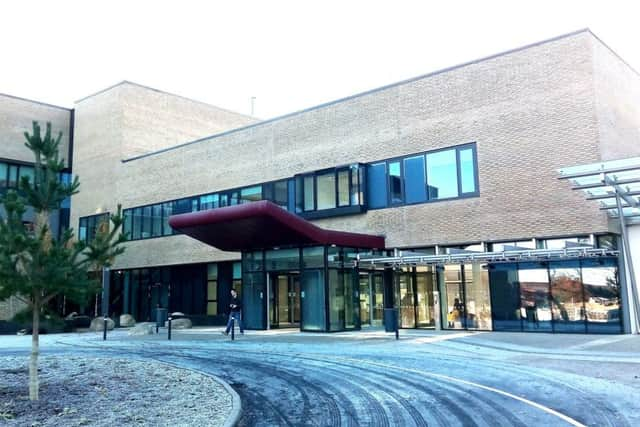Stormont doesn't expect a no-dealBrexit to hit cross-border healthcare
and live on Freeview channel 276
The increased possibility of the UK leaving the EU next March without a withdrawal agreement has led to fear and uncertainty across a host of areas as to what that would entail in Northern Ireland as the only part of the UK which will then share a land border with the EU.
Health has become a major area of cross-border activity over recent years, with money from the EU’s Interreg programme oiling the wheels of cooperation between the health departments in Dublin and Belfast.
Advertisement
Hide AdAdvertisement
Hide AdAs well as routine use of hospitals on either side of the border by people living near the border, in recent years children’s heart services have been re-organised on an all-island basis, with the number of patients across the whole island allowing for a specialist service in Dublin.


Other specialist services which otherwise would not be justified so close to the border, given the relatively modest population – such as radiotherapy at Altnagelvin Hospital in Londonderry border – have been made possible because they have been designed to service both sides of the border.
Although the precise implications of any no-deal Brexit remains unclear, Stormont’s health department said that it did not expect to see such a situation halting cross-border health services.
The department told the News Letter: “The EU Negotiations Guidelines recognise ‘existing bilateral arrangements’ and the fundamental importance of the Common Travel Area (CTA) in underpinning the UK/Ireland relationship.
Advertisement
Hide AdAdvertisement
Hide Ad“The current arrangements for access to healthcare in border areas and between UK and Ireland, generally reflect the EHIC and S1 mechanisms that work across the EU. However, bilateral arrangements between the UK and Ireland require that neither document needs to be provided, by citizens using healthcare under them, in the other jurisdiction. The costs of this healthcare is then estimated and reimbursed between the two governments.
“Discussions are underway about the CTA arrangements going forward between the UK and Ireland and the Department of Health are involved in those discussions.
“The services provided within the All-island Congenital Heart Disease Network have been developed and agreed by the Departments of Health in Northern Ireland and in the Republic of Ireland.”
The department said it would continue to monitor the Brexit process and discuss “any potential impact on cross-border specialist services” with its counterpart in Dublin.
Advertisement
Hide AdAdvertisement
Hide AdIn March, the House of Lords’ EU Committee published a report on the implications of Brexit. It said that “a hard border on the island of Ireland would be highly detrimental to healthcare for patients on both sides of the border, including children and other vulnerable patients”.
Damien McCallion, Director-General at Co-operation and Working Together (CAWT), a partnership between the Northern Irish health services and the border counties of the Republic of Ireland, told the committee that as well as planned cross-border medical procedures emergency treatment involved small numbers of people but “the need was critical” for those individuals.